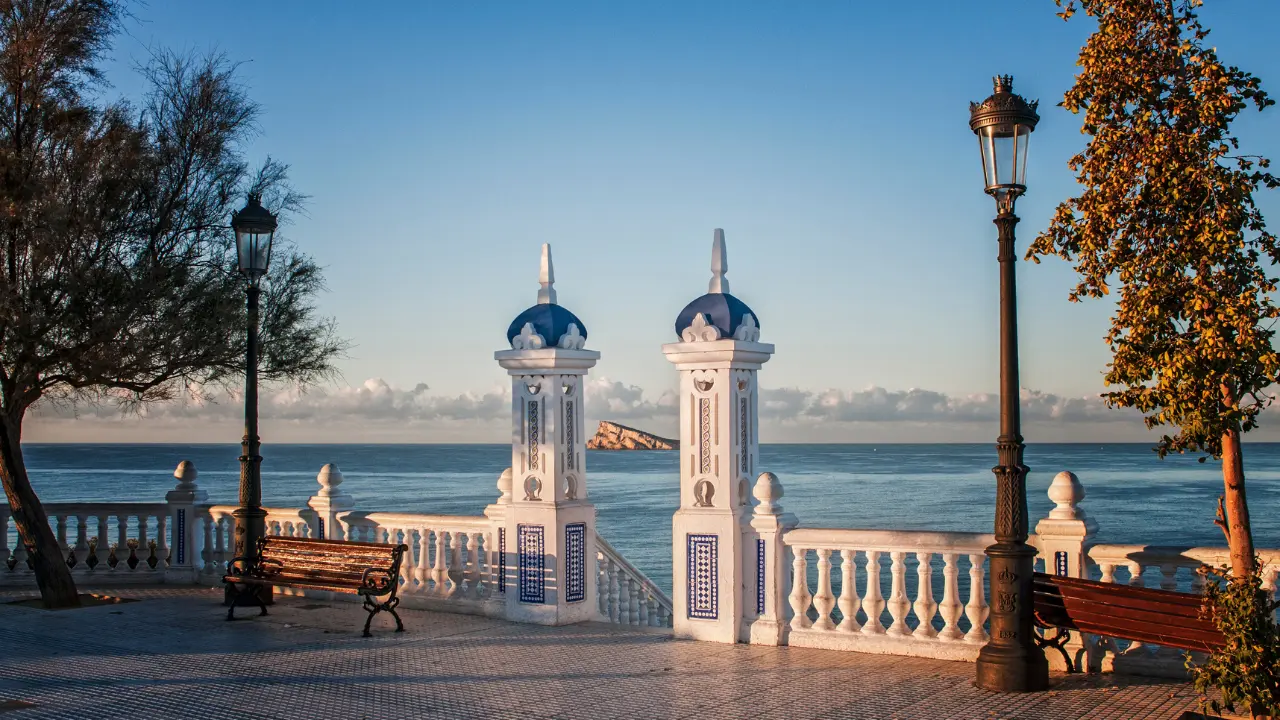The allure of Spain, with its sun-kissed beaches, historical cities, and flavorful cuisine, has always been irresistible to many. Over the years, a growing number of people, especially from countries like the UK and USA, have been captivated by the idea of spending their golden years in this Mediterranean paradise. But, can one truly retire in Spain? The simple answer is yes. Whether you're drawn to the bustling life in cities like Madrid and Barcelona or the tranquil retreats in Andalusia and Costa Brava, Spain offers a plethora of options to suit varied preferences.
So, how to retire in Spain?The process, while straightforward, requires adherence to certain residency and visa guidelines, especially for non-EU nationals. It's also essential to understand the financial aspects, from property purchase to taxation. The question of where to retire in Spain is more of personal preference. Coastal towns, serene villages, or urban centers – Spain has it all. And for our American readers wondering, can Americans retire in Spain? Absolutely! While the process might differ slightly from European counterparts, with the right information and preparation, the Spanish dream is within reach for U.S. citizens too.
Best places to retire in Spain
Spain, with its diverse landscapes, rich history, and welcoming culture, offers a myriad of destinations for those seeking the ideal retirement spot. Costa Blanca, with its year-round sunshine and pristine beaches, is a favorite among Northern Europeans, offering a harmonious blend of coastal beauty and urban sophistication. Costa del Sol, stretching from Malaga to Gibraltar, is renowned for its golden sands, golf courses, and upscale resorts. Inland, the regions of Andalucía and Extremadura present a more traditional Spanish experience, with rolling olive groves, historic cities, and a slower pace of life. For those preferring a cooler climate, Galicia and Asturias in the northwest offers lush landscapes, rias, and a rich Celtic heritage. Lastly, the islands, from the Balearics like Mallorca and Ibiza to the Canaries such as Tenerife and Gran Canaria, offer idyllic settings with distinct personalities, ensuring Spain has a retirement haven for every preference.
Indeed, retiring in Ibiza during the winter is an option that many foreign residents (expats in English) are starting to seriously consider. The island, renowned for its vibrant summer nights, transforms into a peaceful and serene paradise during the chilliest season of the year. Winter in Ibiza boasts a mild climate, deserted beaches perfect for morning walks, and a bohemian atmosphere that encourages relaxation and introspection. For those seeking retirement away from the hustle and bustle yet still immersed in rich culture and natural beauty, Ibiza provides the ideal backdrop for their golden years.

Costa Blanca: An Overview
Stretching over 200 kilometers along the southeastern coast of Spain, the Costa Blanca, or White Coast, is renowned for its pristine beaches, crystal clear waters, and a coastline that transitions from flat sandy beaches to rugged cliff-sides. Anchored by the cities of Alicante and Benidorm, this region offers a mix of bustling urban centers and serene coastal towns.
Why Costa Blanca?
Costa Blanca provides the perfect blend of relaxation and activity for retirees. Its combination of a benevolent climate, affordable living, cultural richness, and modern amenities ensures that those who choose to retire here enjoy a fulfilling and vibrant life.
- Climate: Costa Blanca boasts over 300 sunny days a year. Its mild winters and warm, but not scorching summers, make it perfect for retirees seeking a temperate Mediterranean climate. This stable weather pattern is not only pleasant but has been cited for its health benefits, particularly for those with arthritis or respiratory issues.
- Affordable Living: Compared to other coastal regions in Spain, Costa Blanca offers a relatively affordable cost of living. Whether you're renting a sea-view apartment or buying a hilltop villa, there are options to suit varied budgets.
- Expat-Friendly: With a sizable community of British, German, and Scandinavian retirees, newcomers will find it relatively easy to integrate. Numerous clubs, associations, and social groups cater specifically to the expatriate community. A curious fact is that the second colony with more Norwegians outside Norway, after London, is the municipality of L'Alfàs del Pi, representing 11% of the population. We can even say, if we talk about data, that 50% of the population of this municipality in Alicante is of foreign origin.
- Cultural Richness: Beyond the beaches, the region is steeped in history and culture. From the ancient ruins in Denia to the Moorish influences in Altea, there's a wealth of cultural experiences to immerse oneself in. In fact, this area of south-eastern Spain is one of the regions producing some of the best wines in Spain, which boasts a number of designations of origin and vineyards and wineries to visit for a wine tasting.
- Modern Amenities: The region is well-equipped with modern amenities. Healthcare facilities are top-notch with several hospitals and clinics catering specifically to English-speaking patients. Shopping centers, theaters, golf courses, and restaurants abound, ensuring that retirees have everything they need at their fingertips.
- Accessibility: Alicante Airport, one of the busiest in Spain, ensures Costa Blanca is well-connected with major European cities. This makes it convenient for retirees whose families might be visiting or those who love the occasional European getaway.

Cost of Living in Spain: A Deep Dive into the Costa Blanca
Retiring in Spain has long been a dream for many due to its sun-drenched landscapes, rich history, and laid-back Mediterranean lifestyle. One of the most sought-after regions for expats and retirees is the Costa Blanca, a beautiful stretch of the Mediterranean coastline in the province of Alicante. From the bustling town of Benidorm to the serene vibes of Altea, the Costa Blanca offers a variety of living experiences tailored to different budgets.
- Housing: Accommodation costs can vary widely based on location and type. For example, while you can find a one-bedroom apartment in the center of Alicante for around €600-€800 per month, prices can be higher in sought-after coastal towns or considerably lower in inland villages. Speaking about rental of luxury homes and apartments, here can vary significantly in price, based on their location and amenities. While some exclusive areas or well-appointed properties command prices upwards of €10,000, there are still lavish options available closer to the €1,000 mark. The disparity in price often hinges on proximity to coveted beachfront locations, panoramic views, or state-of-the-art facilities within the property. However, regardless of the budget, the Costa Blanca offers a slice of luxury to match every discerning buyer's desire.
- Utilities: Utility bills in the Costa Blanca are generally reasonable. While electricity costs can be higher during the summer months due to air conditioning, water and gas are relatively cheaper. On average, utilities for a standard 100 m2 apartment range from €100 to €150 monthly for a 4 people family.
- Food and Dining: Eating out in the Costa Blanca can be a delightful and affordable experience. Local markets offer fresh produce, meats, and cheeses at competitive prices. A typical three-course meal at a mid-range restaurant can range from €20 to €40. For those who prefer to cook at home, grocery stores like Mercadona, Consum, and Lidl offer a variety of local and international products at economical prices.
- Public Transportation: The Costa Blanca's public transportation system is known for efficiency and coverage, with the TRAM connecting Alicante to Dénia through key cities like Benidorm, Altea, and Calpe. Complemented by various bus lines, it ensures all areas, even those not directly served by the TRAM, are accessible. The pricing structure is competitive, offering unlimited access to both TRAM and buses with a monthly pass at just €9.70, or a yearly pass at €87.30. This affordability and convenience make exploring and residing in the Costa Blanca a truly accessible experience.
- Healthcare: The Costa Blanca is home to some excellent healthcare facilities. While EU retirees can access the Spanish public healthcare system, many also opt for private insurance, which offers quick access to specialists and private hospitals. Monthly premiums vary based on coverage but are generally affordable.
- Leisure and Activities: From golfing to sailing, the Costa Blanca offers a myriad of recreational activities that cater to various budgets. While some activities like golfing can be pricier, walking along the promenades, enjoying the beaches, or hiking in the nearby mountains are entirely free.
Healthcare for Retirees in Costa Blanca, Spain
The Spanish public healthcare system, known as the "Sistema Nacional de Salud" (SNS), is recognized for its high standards and is often ranked among the top healthcare systems globally. However, like any system, it has its challenges, such as waiting times for certain services. Many residents find a combination of public and private healthcare to suit their needs best.
When considering healthcare, both public and private systems are available, and the options vary based on whether one is from an EU/EEA country or a non-EU country.

Public Healthcare
- EU/EEA Retirees:
- EU/EEA retirees have the advantage of accessing Spain's public healthcare system due to reciprocal health agreements. Initially, retirees can use their European Health Insurance Card (EHIC) for temporary access to medical services.
- For those who plan to settle permanently in Costa Blanca, it's essential to register with the local health system. This involves obtaining a social security number, registering for healthcare with the local authorities, and then choosing a primary care physician at the local health center.
- Non-EU Retirees:
- Those from outside the EU/EEA will find accessing the public healthcare system a bit more intricate. Typically, proof of private health insurance is required when applying for a Spanish residency visa.
- After residing in Spain for a continuous period (usually a year), they might be able to register for public healthcare by contributing to the Convenio Especial – a monthly pay-in scheme. However, conditions and eligibility can vary, so it's crucial to check the latest regulations.
Private Healthcare
Both EU and non-EU retirees have the option to access private healthcare in Costa Blanca. Many expats, irrespective of their origin, opt for private health insurance for various reasons:
- Choice & Convenience: It offers freedom in choosing doctors or specialists and often faster access to medical services.
- Language: Many private practitioners and clinic staff in Costa Blanca are multilingual, making communication easier.
- Coverage: Some treatments or services might not be covered under the public system or might have long waiting times.
For both EU and non-EU retirees, when considering private health insurance, it's essential to:
- Compare various policies to ensure they meet individual health needs.
- Check if the policy covers pre-existing conditions.
- Ensure the chosen insurance is recognized and accepted widely, especially if planning to use it as proof for residency applications.
Taxes for Expats in Spain: A Guide for UK and USA Citizens
When considering retirement in a foreign country like Spain, understanding the tax implications is crucial. For both UK and USA citizens, Spain offers a sunny haven with a relatively low cost of living. However, its tax rules can be complex and vary based on individual circumstances. Here's a breakdown tailored for UK and USA retirees:

- Worldwide Income Taxation
- For UK Citizens: If you become a tax resident in Spain, you'll need to declare your worldwide income to Spanish tax authorities. This includes pensions, rental incomes, dividends, and interest from the UK. Thankfully, Spain and the UK have a double taxation treaty, which means you won’t get taxed twice on the same income. But it's essential to understand how each income type is treated under Spanish tax laws.
- For USA Citizens: The U.S. taxes its citizens on their worldwide income regardless of where they reside. So, even if you retire in Spain and become a tax resident there, you'll still need to file U.S. tax returns. The U.S.-Spain Tax Treaty can help ensure you're not double-taxed, but there are specific forms and regulations to navigate.
- Wealth Tax
- For both UK and USA Citizens: Spain imposes a wealth tax on both residents and non-residents. The tax applies to the net value of your assets (after deducting liabilities). Rates vary by region, and there are significant allowances which can reduce the taxable base, especially for permanent homes.
- Inheritance and Gift Tax
- Spain has an inheritance and gift tax that can affect both residents and non-residents. While there are allowances based on the relationship to the deceased/donor and age, it's important to plan inheritances carefully.
- Real Estate
- Owning property in Spain comes with its own set of taxes, regardless of residency status. There's an annual property tax (IBI) and a non-resident property tax based on the property's value. For UK and USA citizens renting out Spanish property, rental income will be subject to tax in Spain, but again, double taxation treaties can help offset these costs.
- Reporting Obligations
- Spain has stringent reporting requirements for tax residents. If you have foreign assets worth over €50,000 (in categories like real estate, bank accounts, or shares), you must report them. This declaration, known as Modelo 720, helps Spanish tax authorities track wealth held abroad and doesn't directly result in a tax but can lead to severe penalties if not submitted correctly.
Final Thoughts: For both UK and USA retirees, it's essential to engage with a tax professional familiar with both Spanish tax laws and the intricacies of your home country’s treaty with Spain. Proper planning and adherence to tax regulations will ensure a smooth financial transition to your Spanish retirement.
Buying Property in Costa Blanca: A Comprehensive Guide
While purchasing a property in Costa Blanca is a dream for many, it's imperative to approach it with due diligence and informed knowledge. With its stunning locales and diverse property options, Costa Blanca truly presents a golden opportunity for retirees to settle in their slice of Spanish paradise.
Costa Blanca offers a diverse range of properties, from modern apartments in bustling cities like Alicante to tranquil villas in quaint towns such as Moraira or Altea. The coastline is dotted with white sandy beaches, while the inland offers green valleys and mountain views, making it an ideal location for different preferences.
Legal Processes & Considerations when buying a property in Spain
Acquiring property in Spain involves certain legal procedures. It's crucial to obtain a Foreigner Identification Number (NIE) which is required for any property transaction. Employing a local solicitor can aid in navigating the intricacies of Spanish property law and ensuring all documents are in order.
Like any property venture, there are potential risks. Some properties, particularly in coastal areas, may have legal issues or be affected by coastal laws restricting development. It's essential to ensure that any property has its proper permits and isn't subject to any disputes.
Best Areas to Invest
While the entire Costa Blanca is enticing, certain areas stand out for retirees:
- Altea: Renowned for its old town with whitewashed houses and cobblestone streets, Altea offers a serene environment for retirees. Its blue-domed church is an iconic feature, and the town boasts a beautiful seafront promenade. The nearby marina offers opportunities for boating and other water activities. Given its artistic vibe, Altea is also a haven for those with an inclination towards arts and crafts.
- Benidorm: Once a tiny fishing village, Benidorm has transformed into a bustling resort town with high-rise buildings and a vibrant nightlife. However, it's not just for the younger crowd. Areas like the Old Town provide a more traditional feel, and there are numerous amenities and clubs tailored for retirees. Its beaches, such as Playa de Levante and Playa de Poniente, are among the best in Spain.
- Benissa: A town with a rich history, Benissa has a beautiful historic center with medieval architecture. For retirees interested in Spanish culture, this town provides a genuine feel of the Costa Blanca's history. Its coastal area combines sandy beaches and coves with mountainous terrain, ideal for those who enjoy nature walks.
- Calpe: Dominated by the imposing rock of Ifach, Calpe offers a mix of traditional Spanish charm and modern amenities. Its beachfront promenade is lined with restaurants and cafes, perfect for relaxed afternoons. Moreover, Calpe's fishing harbor is a testament to its roots, and fresh seafood is abundant.
- Jávea/Xàbia: Located between cliffs, this town offers both sandy beaches and hidden coves. Jávea has a significant expat community, making it easier for retirees to integrate and find English-speaking clubs and activities. Its old town, with gothic buildings and a fortified church, is worth exploring.
- Moraira: A lesser-known gem, Moraira is a small fisherman's town that has grown into a popular destination for European retirees. It offers a relaxed pace of life, with its marina, weekly markets, and numerous restaurants. The town seamlessly combines modern amenities with its traditional roots.
For those looking to explore more about the property buying process in the region, check out our comprehensive Buyer's Guide for the Valencian Community. This guide offers in-depth insights, legal advice, and tips for prospective buyers.
Latest blog entries

Tourist Rental Law in the Valencian Community (2025): Complete Guide
19 November, 2025

Exclusive Apartments on the Top Floor: Benefits, Lifestyle and Market Trends on the Costa Blanca & Ibiza
31 October, 2025

Solar energy on the Costa Blanca: profitability and added value for luxury homes
29 October, 2025
